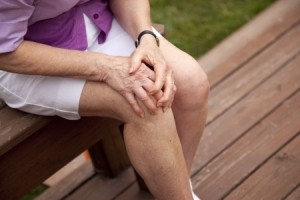The knee’s medial collateral ligament (MCL) may tear after sudden twisting or trauma to the knee. Older people and people who are very physically active are most likely to get MCL tears. Below, we will take a look at some of the most common MCL tear symptoms, as well as how the condition can be treated.
4 Common Slight MCL Tear Symptoms
MCL symptoms may be more or less intense depending on how severe the tear is. Some of the most common MCL tear symptoms include:
- Knee stiffness
- Knee swelling
- Knee pain, especially while walking or moving
- A feeling that the knee may “give out” if you walk
If you begin to experience any of these symptoms, it is important to stop doing your current physical activity immediately. Severe symptoms should be evaluated by a doctor immediately. If your symptoms are more moderate, you may do at-home care measures such as rest, ice, over-the-counter medication, and elevation before deciding whether or not to contact a doctor.
The symptoms of an MCL tear can be quite similar to the symptoms of other knee problems, like tears to the ACL or MCL or tears to the meniscus. To make a definitive diagnosis, your doctor will perform a physical examination followed by diagnostic tests. Ultrasound, x-ray, and CT scans may all be used to visualize the knee.
MCL Tear Treatment
The treatment for an MCL tear will depend on how severe the tear is, as well as the patient’s situation. Mild tears, which are less common, can often be treated with a few weeks of rest and rehabilitation. On the other hand, moderate to severe tears do not usually have the capacity to heal on their own. For patients who are older and less active, strengthening the muscles that support the knee may be preferable to surgery, but younger and more active patients typically require surgery.
Doctors can perform MCL surgery arthroscopically, by using a small camera to view the inside of the knee. This allows the doctors to operate on the knee while making only small incisions. As a result, the procedure is much less invasive than conventional knee surgery, and the procedure can be performed in an outpatient setting without using general anesthesia.
Because each case is unique, only a doctor can diagnose your MCL tear and work with you to decide which treatment is right given the state of the knee and your complete clinical picture. Dr. Howard Marans would be happy to meet with you about your MCL tear symptoms. To schedule your consultation today, please click below and enter your information or call OC Orthopedic at (714) 979-8981.


